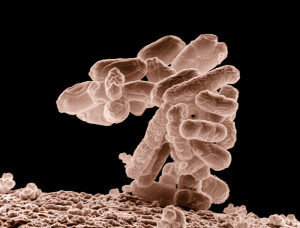Trauma, the Gut and Healing: Building Deep Resiliency
Imagine yourself as a small child and living in a household where the parents drink excessively, argue and at times lash out angrily and abusively towards you. Or imagine living in a situation where you are poor and living in a violent neighborhood where you feel threatened regularly. Through studies, we now know that that type of stress is linked to higher potential for physical and mental illnesses such as autoimmune disorders, depression and anxiety later in life. What we are starting to discover is that one of the main reasons for this is due to the damage that stress does to the gut and to the gastrointestinal microbiota.
Throughout the body there are trillions of bacteria and in the digestive system itself reside 3-4 pounds of bacteria that we call the gut microbiota. These 500-1000 strains of bacteria are partly responsible for many processes including digestion, absorption, manufacturing vitamins, and helping improve immune system function. Research over the last decade is increasingly showing how the microbiota plays a key role in mental health as well.
Stress, trauma, poor diet, antibiotics, medications such as NSAIDS and chemicals all can cause damage to the microbiota. When under extreme stress as a child, the microbiota can be damaged to the point of reducing the diversity of flora in the gut. Not only that but this can lead to lifelong damage to the microbiota. A lack of microbiota diversity is linked to greater levels of anxiety and depression and heightened inflammatory markers. The good news is that there are a number of things we can do to improve the health of the gut and to improve the microbiota. Through changes in our diet and adding key herbs the microbiota can be healed to help people feel better physical and emotionally. In essence, early childhood trauma can be treated in part by addressing digestive health.
The Science
Research is increasingly connecting the health of the gut to our emotional wellbeing. There are several areas of research going on. One is focusing on how the microbiome impacts our mood and researchers are discovering how certain bacteria can be beneficial for our mood. A recent study examined the microbiome of folks in urban Italy compared to traditional Hadza foragers in Tanzania. What they discovered is that the Hadza’s microbiome included a far more diverse array of bacteria while the Italians was far less diverse. Lacking healthy strains of bacteria is correlated with heightened levels of inflammation, anxiety, depression, autoimmune diseases and other health problems. Think of it this way:
If our microbiome is like a forest, traditional foragers have far more species of trees and plants in their forest while modern urban people have far less. We know from studying the environment that greater ecological diversity is a signpost of a healthier, stronger and more resilient ecosystem. And the more the environment leans towards less biodiversity, the more fragile it is. In essence, the modern person’s microbiome is increasingly fragile and less resilient.
So why the difference in the microbiota between traditional foragers and modern people? There are a lot of potential culprits. The Western diet is far less diverse with about 20 ingredients, while traditional foragers ate upwards of 150 different ingredients. That complexity of diet actually leads to a greater need for different types of bacteria that can break down multiple types of food. Other culprits include the modern use of antibiotics, preservatives, chemicals and the pervasive effects of stress and trauma impacting our gut health and at times wiping out whole colonies of beneficial bacteria.
Add to that the potential for early childhood stress and trauma. Those stressors can also negatively impact the gut and lead to a lifelong change in the composition of the microbiota. Those damaging changes can lead to greater susceptibility to physical illnesses, anxiety and depression.
Tickle Tickle
So if beneficial bacteria are an important part of good mental health, what is the mechanism? How do they actually induce greater feelings of of calm and wellbeing? Well there are a number of different pathways. One of the most interesting is that the bacteria are interacting with the ventral vagus nerve, the longest nerve that travels from the brain through to the heart and lungs all the way to the digestive system. The Vagus nerve is connected to the parasympathetic nervous system and the ability to help the body to be calm, relax and digest. As part of the Gut-Brain axis, certain strains of bacteria “tickle” nerve endings that then communicate through the vagus nerve to the the areas of the brain associated with anxiety.
Researchers have also discovered that mice that lack gastrointestinal bacteria (GF or Germ free) exhibit far higher levels of stress and anxiety. When those mice are fed on a broth that includes bacterial strains such as lactobacillus rhamnosus, they have much lower levels of anxiety. This type of bacteria produces GABA, the main calmative neurotransmitter in the body. This has led to research amongst veterans where they are conducting tests to see if beneficial bacteria can help reduce anxiety in veterans who have PTSD. This is part of a larger framework of research that is looking at probiotics and certain strains of bacteria as forms of “psychobiotics” that could influence the body to feel less anxiety and improve mood and wellbeing.
Gut Lining
When talking about Gut health, there is another area that is key to examine, and that is the intricate role of the lining of the gut. Leaky Gut occurs when this thin mucosal lining is compromised and becomes inflamed and porous so that compounds normally contained in the digestive system “leak” into the blood stream and then travel around the body, leading to systemic inflammation and various forms of illness and poorer mental health. Leaky gut is associated with chronic fatigue, food allergies, arthritis, autoimmune disorders and poor mood.
One of the main markers of inflammation is the over-secretion of inflammatory cytokines. These inflammatory markers are much more elevated in folks who are having episodes of depression, anxiety, mania and psychosis. In the medical field there is some interest in prescribing anti-inflammatory drugs as a way of not only managing physical health concerns but mental health issues as well.
The Big Picture
The field of psychiatry is changing. Traditionally the focus of treatment has been on augmenting or reducing certain neurortransmitters such as dopamine, serotonin or GABA through drug therapy (think antidepressants and tranquilizers). But increasingly the field is broadening to integrate new research into the health of the gut, the microbiota, the gut-brain axis, and inflammation as causative factors in poor mood and wellbeing. Though most mainstream medical doctors are still focused on prescribing traditional psychiatric medications, integrative practitioners have been focusing on the importance of gut health as part of improving mood and wellbeing. This is really a revolution in mental health that acknowledges the importance of not just the nervous system but our digestive system, what we eat, how we nourish ourselves and the health of our microbiota.
Why is our Gut Hurting?
When considering how to heal the gut its key to look at the variety of factors that could be contributing:
Diet: One of the first thing to consider is what you are already eating. So many digestive disturbances can be healed by reducing/eliminating processed foods, “quick carbs”, sugars, common allergic foods such as wheat and dairy. Moving to simple easy to digest warm meals filled with broths and traditional meals made with grains and vegetables can also be amazingly healing and often essential to really eliminate symptoms.
Stress: So obvious it barely needs mentioning but when we become overwhelmed by obligations, family, relationship or job problems, it takes a toll on our gut. Our ability to digest and eliminate properly gets easily affected and this can come out as increased loose stools, constipation, inflammation and other factors. Working through stressors is key to help reduce the load on the gut.
Previous Trauma: Trauma in the form of emotional abuse, violence, neglect and other stressors can have a lasting impact on our body and our microbiota.
Bessel Van Der Kolk, in his book The Body Keeps the Score, states “Traumatized people chronically feel unsafe inside their bodies: The past is alive in the form of gnawing interior discomfort. Their bodies are constantly bombarded by visceral warning signs, and, in an attempt to control these processes, they often become expert at ignoring their gut feelings and in numbing awareness of what is played out inside. They learn to hide from their selves.”
Working through this held felt tension in the body and the gut can often be helped by somatic therapies such as yoga, qi gong, dance and trauma release exercises. Traditionally, indigenous people often work through trauma via ceremony, healing rituals and community reintegration that help to release this held/felt tension.
Oppression: We live in a world where large groups of people are oppressed by low wages, substandard housing, lack of access to good healthcare, good food and adequate school systems. This leads to a chronic toll on the body that is often felt in the gut in the form of inflammation, a damaged microbiota and poor digestion that then translates into worsening mood and wellbeing. There are no easy answers to this as it requires systemic approaches to dismantle the widespread oppression that affects billions of people.
Drugs/Alcohol/Medication: All forms of medications, drugs and alcohol can have an adverse effect on the gut and tend to slow down and damage digestion. Its key to particularly note that antibiotics and NSAIDS are deeply damaging to gut health and their frequency of administration is often excessive.
In Come the Plants
When we think about ways to heal the digestive system, the most common way that humans have traditionally done this is to use herbs. Herbs are amazing healers for the gut and work on a number of levels. They can act as anti-inflammatories, nourish and strengthen, promote digestive flow, relax the stomach to help it digest better, improve metabolism and heal the gut lining. Let’s take a closer look at all the amazing things herbs can do.
Aromatics
These are herbs that you likely already have in your spice cabinet or growing on your back deck and are known as aromatic carminatives. A carminative herb is one that helps ease digestion and has an uplifting, dispersing quality. They help when there is stagnation, heaviness, difficulty in digestion and absorption, tend to relax the digestive system and are antispasmodic when there is cramping. They have volatile oils that give these herbs their distinct aroma and are often turned into essential oils that can be used for aromatherapy as well. They often have an added function of being calming and uplifting. This can be especially important for folks who have a lot of stress or who have experienced trauma and are tight and are holding in their bellies.
They include the Mediterranean herbs such as mint, sage, rosemary oregano, fennel and thyme as well as the more warming middle Eastern/South Asian aromatics such as ginger, cardamom, nutmeg, coriander and turmeric.
These are some of the best go-to herbs for people with digestive problems as they tend to be gentle, easy to digest and can be easily added to meals.
Bitters
We don’t get much bitter food into our modern diet and this is one of the reasons for poor digestion. Outside of coffee and the occasional piece of kale, bitter is fairly lacking. The bitter taste helps things to move and the direction is downward (unless you take a huge amount- then it can be emetic.) These are herbs that help promote digestive function, improve bile flow and help in the process of assimilation and elimination. Traditionally bitter plants have been associated with improving liver function. In Chinese medicine, a stagnant liver is correlated with stored and stuck frustration and anger. The bitter flavor helps us to feel less stuck and angry and feel like our energy is more easy and free flowing.
Some classic bitter herbs include the roots of dandelion, chicory, burdock, yellow dock, bupleurum, angelica as well as the reishi and fomitopsis mushroooms.
Demulcents
These are herbs that help calm and soothe inflamed digestive systems and are especially helpful for those with ulcers, gastritis and heart burn or chronic constipation.
Some examples include calendula, licorice, meadowsweet, marshmallow, slippery elm, and plantain.
Polysaccharide Rich “Sweet” herbs
In an important article from Nature, studies were done on ginseng and how it can help restore the gut microbiota. Ginseng has a high composition of polysaccharides that act similar to prebiotics to stimulate the growth of lactobacillus and Bacteroides spp. There are a number of “sweet” Chinese herbs that are regularly used to enhance digestive health. They are often included in formulas such as 6 gentlemen and Gui pi tang. Interestingly these herbs are also associated with strengthening the “qi” or the overall feeling of energy in the body. Essentially, healing the gut leads to greater feelings of vitality and energy.
Examples include ginseng, codonopsis, astragalus, dong gui and licorice.
Astringents
These are herbs that are helpful for toning up the digestive lining and helping with loose bowels and diarrhea. Examples include red raspberry leaf, yarrow, strawberry leaf and geranium.
Nutritional
These are herbs that provide an enormous amount of vitamins and minerals and include herbs suchas nettles,oat straw, alfalfa, seaweeds, moringa and red clover.
Liver Healers
There are a number of herbs that are particularly useful for healing the liver when there has beendamage suchas in the case of alcoholism and hepatitis C. These include milk thistle, resihi, fomitopsis and schisandra.
Steps Towards Healing The Gut
As we see from research there is increasing evidence that anxiety, depression and other mental health conditions are strongly correlated with gut health. And we are learning that when the microbiota is damaged or with increased inflammation in the gut lining we can develop a wide range of both physical and emotional complaints.
Though each person’s digestive issues are unique and require specific care, there are some general herbal protocols that can be helpful for most people. Here are some of my basic recommendations:
1- Reduce irritating foods. These often include coffee, sugar, processed foods, chocolate,
tobacco as well as common allergens such as wheat, dairy and nightshades. These are the low hanging fruits that can be reduced to help improve gut health and in turn improve mood. Its also key to avoid cold foods that damage the gut. That means avoid ice, raw salads and frozen foods and beverages.
2- Increase food and herbs in the diet that promote digestion and absorption. One of the bestways to do this is by eating fermented foods in the form of miso, kombucha, kimchi and sauerkraut. Fermented foods act as prebiotics to promote certain bacterial strains that are beneficial for to the microbiota. Its also great to add herbs to the diet that include the aromatic herbs listed above. That means add herbs such as fennel, tarragon, ginger and cardamom to your meals. Your tummy will love you. Bitter herbs are also really helpful in promoting digestive juices and better digestion and absorption. Some examples include dandelion, burdock, yellow dock and gentian. See below for more detailed information.
3- Eat slow. The more work we do with our teeth, the less work out digestive system has to do. In general we eat faster and eat too much when we are watching the TV, are on the computer and phone. Try to take a break from the screens while eating.
4- Lower the Stress. If you are stressed, your gut will freeze up and won’t have the motility needed to digest and absorb food. Lowering stress levels can be next to impossible for some folks, especially for folks who have to work multiple jobs or have poor housing. But even small changes can be key to reducing stress and in turn taking a load off our gut
5- Move. The human species is one that traditionally has lived mostly outdoors and involved inforaging and hunting. That means that a portion of the day was always spent moving outside. Movement helps the digestive system to flow and improves motility and peristaltic function. Try 30-60 minutes of outdoor gentle movement a day such as walking, hiking, biking, qi gong and yoga. Heavy exercise can also place serious stress on the digestive system so be careful of those daily spin classes.
6- Nourish. There are a lot of articles and books about what diet is best for people who are trying to repair and heal the gut. From Paleo to Vegan, often what is missed is that it can be really hard for people to digest food and its best to try and take in warm food in small amounts that are easy to digest. So think well cooked meals and soups that emphasize whole foods. While reducing processed foods, simple carbs and sugar is often key to healing the gut, a paleo diet that emphasizes big pieces of red meat and raw salads can be tremendously hard for some people to digest. Embracing traditional diets from throughout the world is often key to healing the gut as well. Nourishing Traditions and Nourishing Broth by Sally Fallon are two of my favorite go-to books that will go along way to improving and healing gut related health issues.
Choosing which herbs to use and how to use them as part of a protocol for nourishing and healing the gut can be challenging to know. The thing I like to keep in mind is that the gut generally likes to deal with things as simple warm liquids. Pills, capsules, powders and alcohol tinctures are harder to consume and absorb. So with that in mind I like to promote people taking in broths and teas primarily.
Gut Healing Recipes
Here are a few recipes for herbal preparations that can be consumed regularly to improve digestion and gut health.
Digest Ease Tea: This is especially helpful for reducing stomach cramping, relaxing the belly and helping people to digest their meals.
1 tablespoon of mint
1 teaspoon of fennel
Add herbs to one pint of hot water and let steep for 10 minutes and then strain and drink.
Warm the tummy tea: For those who feel cold, stagnant, bloated and tight in the belly, sometimes with pain and distension.
1 teaspoon ginger
1 teaspoon cardamom
a pinch of licorice
Add herbs to one pint of hot water and let steep for 10 minutes and then strain and drink.
Nourish the stomach Tea: This is an herbal combination that can be taken over a longer period of time (4-6 weeks) on a daily basis when the gut has been compromised and there are feelings of bloating, distension, fatigue, low energy, poor sleep, aches and depression. This is a classic “spleen qi tonic” with Chinese herbs that can be purchased from Mt. Rose. Its really important to make this as a tea (decoction) because several of these herbs (astragalus, codonopsis, ginseng) contain polysaccharides that breakdown into probiotics that promote healthy gut flora.
1 tablespoon of codonopsis
5 sticks of astragalus
1 teaspoon orange peel
1 teaspoon Hawthorn berries
1 teaspoon Dong quai
1/2 teaspoon Licorice
1/2 teaspoon Ginger
Add herbs to a quart of water in a pot. Then bring to a boil and let simmer for 30 minutes. Strain and drink over the day.
Bone Broth with herbs: Bone broth contains collagen that helps heal the gut lining. The breakdown in the gut lining (leaky gut) allows for inflammatory compounds to pass through into the blood stream and cause systemic inflammation that has been implicated in both physical and mental illness symptoms. When you add in an assortment of medicinal herbs you are augmenting the nutritional and tonic value of your bone broth to an amazing level.
Ingredients:
Big Stock pot that can hold a couple gallons of liquid.
Bones from a whole roast chicken (or 2-3 pounds of bones)
6 quarts of water
3 tablespoons of apple cider vinegar
2 Cut up whole onions
6 cloves of garlic
1 tablespoon of codonopsis root
8 stalks of astragalus
1/2 cup of nettles
1/2 cup of burdock root
1 tablespoon of chopped rosemary
1 tablespoon of chopped sage
1 tablespoon of assorted seaweeds
12 shitake mushrooms
After roasting the bones for a half hour, add the bones to a big stock pot. Then add 6 quarts of water and pour in a couple tablespoons of apple cider vinegar. The vinegar helps breakdown the bones. Add in the onion, garlic and the herbs listed above and bring the whole thing to a light boil and then simmer the broth for at least 4 hours and 12-24 hours is best. After the broth has simmered for that time, then strain out everything except the liquid and pour it into containers that can be refrigerated or frozen for later use.
Heal the Gut lining Tea:
These are herbs that are known as “vulneraries.” That means they help heal inflamed and damaged tissue. Add equal parts of these herbs: Calendula, meadowseweet, plantain, chamomile and licorice and place them in their own jar for regular use.
Then take a tablespoon of the herb and add it to a pint of hot water. Steep for 15 minutes and then strain and drink.
Calm Digestion:
This is a useful combo for those who are so anxious and nervous that they are unable to digest food very well.
Catnip 1 teaspoon
Chamomile 1 teaspoon
Peppermint 1 teaspoon
Passionflower 1 teaspoon
Add herbs to pint of hot water. Steep for 10 minutes with lid on the tea and then strain and drink.
Tone the tummy tea:
This is useful for folks who have been having loose stools and diarrhea and need some astringent, vulnerary and calmative herbs.
Red raspberry leaf 2 teaspoons
Yarrow 1 teaspoon
Chamomile 1 teaspoon
Add herbs to pint of hot water. Steep for 10 minutes with lid on the tea and then strain and drink.
Reduce inflamed stomach:
This is for folks who have been getting heartburn and acid reflux.
Try a cup of marshmallow root tea. This is a mucilaginous tea that will help soothe, cool and heal the stomach.
1 tablespoon marshmallow root
1 teaspoon catnip
1 teaspoon mint
Place herbs in pint of cold water (yes cold water) and allow to steep for a few hours or overnight. Strain and drink.
Nourishing Long Infusions
Often our digestive system is fairing poorly because it is lacking in needed nutrients for proper metabolism, digestion and absorption. There are a number of herbs that are nutrient rich such as nettles, oatstraw, moringa, red clover, cacao and seaweeds. One of the best ways to nourish the system deeply is to drink infusions of herbs that have been steeped for many hours. Try one herb a day (nettles, red clover, oatstraw) for a few weeks to see if your energy levels are improved.
Take one cup of herb and place in a quart mason jar. Fill to the top with hot water and let sit for 4 hours or overnight. Then strain and drink throughout the day.
Before meal “bitters”
Traditionally in Europe, bitter plants in the form of a liqueur or tincture was offered before meal to help stimulate salivation and digestive juices. They often include herbs such as dandelion, chicory, burdock and yellow dock. Urban Moonshine sells some lovely bitters that I like and you can sample from a few varieties. You can also purchase tinctures of bitter herbs from places like herbpharm that includes herbs such as burdock root, artichoke leaf and gentian rhizome. Try taking 30 drops of the tincture before a meal to help improve digestion.
Golden Milk
This is an ancient Indian recipe for reducing inflammation and help in improving digestion. It includes turmeric, ginger, black pepper and cinnamon, all nice warming aromatics that help improve digestive juices and stimulate blood flow.
This is a nice and warming beverage that is best suited for people who are already a little cold, tight and stagnant.
1 teaspoon turmeric root
1/2 teaspoon ginger root
pinch of black pepper
cinnamon stick
1 cup milk (fatty milk such as coconut, almond or cow)
1 cup water
Add ingredients to milk and water in a pan. Blend ingredients with a whisk and bring to low heat (not boil) and simmer for 10 minutes. Strain and drink.
Conclusion
Traditionally a healthy digestive system has been linked to good energy levels, feeling calm, bright and resilient. When we think of trauma and ongoing neglect and abuse in childhood, its key to understand that digestive health was likely compromised at that time and that its essential to examine digestive system health as part of the road to healing. Healing the gut can be instrumental in healing the underlying physical wounds of trauma that can be carried to adulthood in the form of a damaged microbiota, poor digestion, inflammation, fatigue, autoimmune disorders, anxiety and depression. By building a stronger and healthier digestive system, it is easier to adapt to stress build the deep resiliency needed to heal from trauma.
Further Reading:
Can the Bacteria in Your Gut Explain Your Mood? NY Times
A Shot against Post-Traumatic Stress Disorder Scientific American
Can Probiotics Improve Your Mood? Time
Inflammatory Cytokines in Depression: Neurobiological Mechanisms and Therapeutic Implications Felger and Lotrich, 2013, Neuroscience
The Body Keeps The Score Bessel Van der Kolk
Gut microbiota-involved mechanisms in enhancing systemic exposure of ginsenosides by coexisting polysaccharides in ginseng decoction Nature: Shan-shan zhou, Jun xu, He zhu, et al.
The Surprising Gut Microbes of African Hunter-Gatherers Wired Magazine
Fermented foods, microbiota, and mental health: ancient practice meets nutritional psychiatry Journal of Physical Anthropology 2014: Selhub, Logan and Bested
Posttraumatic Stress Disorder: Does the Gut Microbiome Hold the Key? Canadian Journal of Psychiatry 2016; Leclerc, Forsythe and Bienenstock
The Gut Microbiome and Diet in Psychiatry: Focus on Depression
Mental Health May Depend on Creatures in your Gut- Scientific American
This article written by Jon Keyes, Licensed Professional Counselor and herbalist. For more articles like this, please go to www.Hearthsidehealing.com.
You can also find me at the Facebook group Herbs for Mental Health.


















